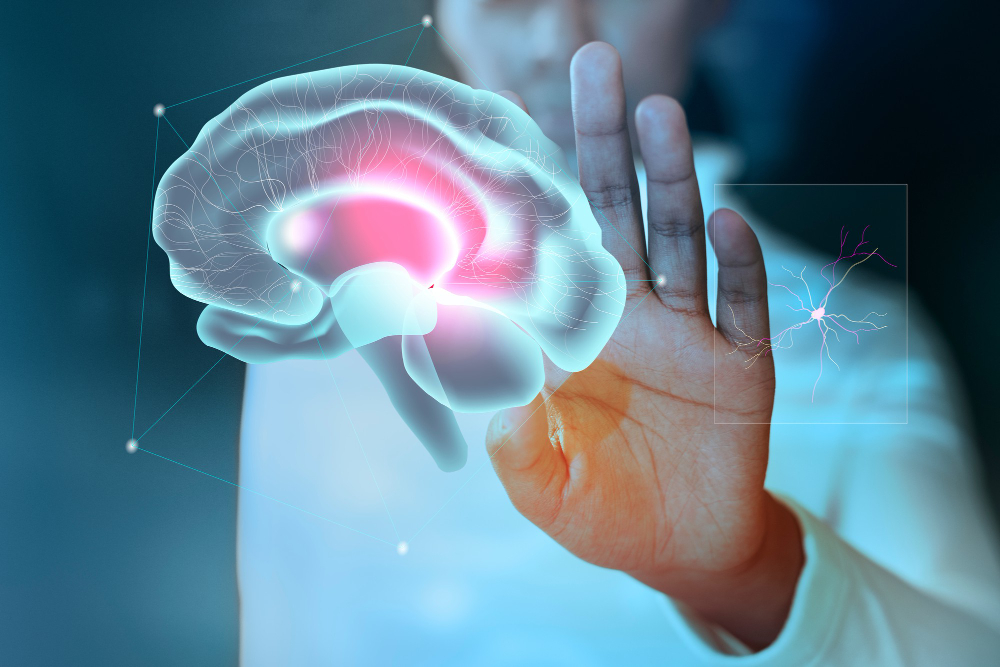New Study Finds Intermittent Fasting May Ease Depression by Rewiring the Brain’s Dopamine System

We live in a world that runs on noise. Notifications, obligations, information—everything urging us to do more, eat more, want more. But in the midst of all this consumption, something inside us quietly breaks. For many, that break takes the form of depression—a deep, aching emptiness that no amount of scrolling, shopping, or striving seems to fill.
But what if healing didn’t come from adding more… but from pausing? What if part of the answer to our mental unrest wasn’t buried in another prescription or productivity hack, but hidden in the spaces between? A new study suggests just that. It explores how intermittent fasting, a practice of deliberate abstention, may do more than improve our physical health—it might actually help rewire the brain’s dopamine system and ease symptoms of depression.
The Heavy Weight of Depression and the Search for New Paths

Depression is a heavy, persistent fog that clouds the minds and lives of millions across the globe. It’s more than just feeling down—it’s a condition that alters how people think, sleep, eat, and interact with the world. And while modern medicine has brought us antidepressants that can offer relief, they don’t work for everyone. Even when they do, the effects can take weeks to emerge and are often accompanied by side effects that range from physical discomfort to emotional blunting. For many individuals, these treatments feel like a slow battle with no guarantee of victory, leaving them searching for something more—something that works differently.
That ongoing search has led scientists to look beyond pills and prescriptions toward everyday habits—particularly, what and when we eat. Among the most intriguing areas of exploration is intermittent fasting, a dietary approach that restricts eating to specific time windows and alternates with periods of fasting.
Originally promoted for weight loss and metabolic health, intermittent fasting is now being examined for its potential mental health benefits. The mind-body connection is no longer just a wellness buzzword; it’s becoming a legitimate frontier of neuroscience, one where nutrition may play a direct role in how we feel, how we think, and even how we recover from psychological distress.
In a newly published study in Neurobiology of Disease, researchers have uncovered evidence that intermittent fasting could ease depression symptoms not just through vague “wellness” effects, but by actually rewiring the brain’s dopamine system—a system deeply involved in mood, motivation, and reward. This marks a shift in how we might approach mental health: not just through altering brain chemistry with external drugs, but by influencing it through intentional behavior. As we explore the study’s findings in the next section, one thing becomes clear—there may be far more power in our daily routines than we ever imagined.
A Closer Look at the Study and What It Found

Researchers at Jilin University in China wanted to see how intermittent fasting might affect depression, so they used a model where mice are exposed to stress over time, mimicking the emotional toll of chronic stress in humans. After several weeks, some mice were put on an intermittent fasting schedule, while others received an antidepressant or a shorter fasting period. The results were clear: mice on the full fasting regimen showed improved behavior, engaging more in activities they previously avoided, like drinking sweetened water, and moving around more during stress tests—signs of a better mood.
What stood out even more was the impact on the mice’s brains. The fasting group showed more activity in the medial prefrontal cortex (mPFC), a part of the brain that controls emotions and decision-making.

Fasting also activated a specific pathway linked to dopamine, a neurotransmitter tied to pleasure and motivation—areas often affected by depression. When scientists blocked this pathway, the positive effects of fasting vanished, suggesting that fasting directly influences the brain’s reward system.
To confirm these results, the researchers used a technique that allows them to control neurons with light. When they activated the specific neurons related to dopamine, the mice showed similar improvements in behavior to those who had fasted. When these neurons were turned off, the benefits disappeared. This study didn’t just show changes in behavior—it identified a biological pathway that could explain how fasting might help improve mood, offering a possible drug-free way to fight depression.
Why Dopamine Matters More Than We Think

Dopamine is often referred to as the brain’s “pleasure chemical,” but this label doesn’t fully capture its power. It’s not just about feeling good—dopamine is what drives us to pursue goals, connect with others, and find meaning in daily life. In depression, dopamine signaling can become severely impaired, which may explain why people lose interest in the very things that once brought them joy. This symptom, known as anhedonia, is one of the most debilitating aspects of the disorder. The new research shows that intermittent fasting can directly stimulate the dopamine D1 receptors, specifically in the prefrontal cortex, a region that helps us regulate mood and make complex decisions. This area of the brain acts almost like the conductor of an orchestra—when it’s out of sync, everything else falls apart.
What’s compelling about the findings is that they go beyond theory. For years, scientists have suspected that dietary habits might affect neurotransmitters like dopamine, but the exact mechanisms remained vague. This study offers a rare level of specificity by tracing how fasting activates a molecular pathway that ends in increased expression of BDNF (brain-derived neurotrophic factor), a protein associated with neuroplasticity—the brain’s ability to rewire and adapt. In people struggling with depression, BDNF levels are often reduced, making it harder for the brain to recover from emotional setbacks. By boosting both dopamine signaling and BDNF expression, intermittent fasting could potentially help break the neurological feedback loops that sustain depressive symptoms. This is not to say it’s a cure-all, but it’s a promising step forward in understanding how lifestyle changes can support mental health on a cellular level
Proceeding With Caution—What We Still Don’t Know

As promising as the findings are, it’s important to approach them with a clear-eyed view. First and foremost, the study was conducted on mice. While mouse models are incredibly valuable for exploring biological mechanisms, human brains are far more complex, and our psychological experience of depression involves layers of cognition, memory, and social context that can’t be fully replicated in animals. In other words, what works in a lab setting may not directly translate into a clinical recommendation. Moreover, intermittent fasting, though generally considered safe for healthy adults, is not suitable for everyone. Individuals with certain medical conditions, histories of disordered eating, or specific medication needs may experience negative side effects from extended fasting periods.
It’s also worth noting that mental health is deeply personal and multifaceted. Depression can be rooted in trauma, genetics, lifestyle, or a combination of factors—and a dietary intervention, while potentially helpful, should not be viewed as a substitute for therapy, medication, or other forms of professional care. More human studies are needed to validate the antidepressant effects of intermittent fasting and to understand the optimal fasting schedules, durations, and individual factors that may influence outcomes. That said, the study does something important: it opens a door. It invites us to think differently about how our daily habits, including how we nourish and challenge our bodies, might play a role in restoring mental balance. Science doesn’t yet have all the answers, but it’s asking the right questions.
What You Do Today Can Rewire Tomorrow

If there’s one message to take away from this research, it’s that our actions—our seemingly small, everyday choices—carry more weight than we think. The idea that something as simple as adjusting when we eat could alter brain function and elevate our mood is both humbling and empowering. We are not powerless in the face of depression. While professional help is essential and irreplaceable, it’s equally important to recognize that our routines, our rhythms, and our relationships with our bodies all shape our mental landscape. Intermittent fasting may not be the answer for everyone, but it symbolizes something larger: the possibility that healing can emerge not only from medication or therapy but from within, sparked by deliberate, informed changes in how we live.
This study reminds us that biology is not destiny. The brain is not fixed. And depression, for all its weight, is not immovable. Through consistent effort, through learning and experimentation, through listening to both science and our own experience—we can begin to tip the scales. Whether you try intermittent fasting or not, let this be a moment to reflect on what in your daily life is nourishing you, and what might be holding you back. Change doesn’t always come in dramatic transformations. Sometimes, it begins with something as quiet and powerful as the space between meals.
Source:
- Piao, J., Chen, H., Piao, X., Cheng, Z., Zhao, F., Cui, R., & Li, B. (2025b). Intermittent fasting produces antidepressant-like effects by modulating dopamine D1 receptors in the medial prefrontal cortex. Neurobiology of Disease, 211, 106931. https://doi.org/10.1016/j.nbd.2025.106931
Loading...

